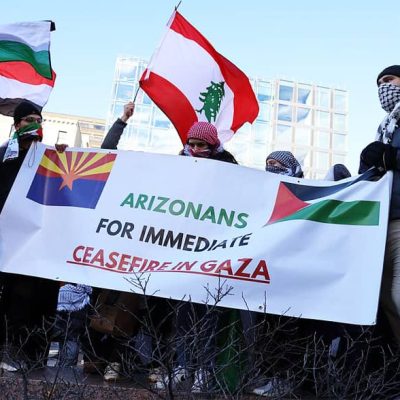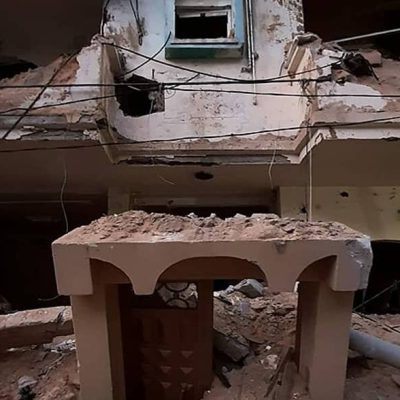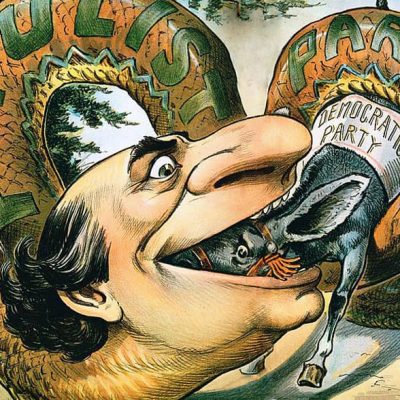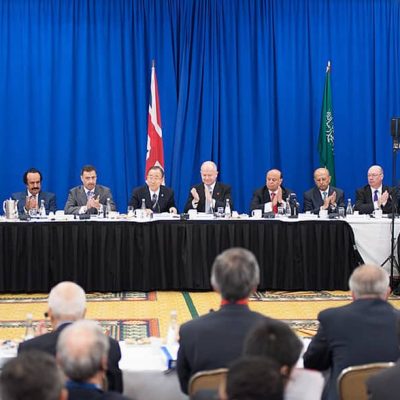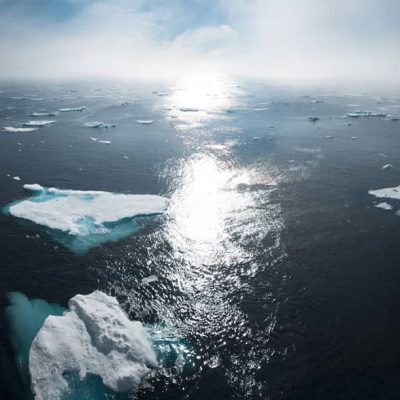 Apelaciones
Apelaciones
Debemos proteger los derechos de la población Hazara en…
Imagen Destacada: Pueblo Hazara en las calles de Kabul, Afganistán 2020. Por Shaah-Sultaan, CC BY-SA 4.0 <https://creativecommons.org/licenses/by-sa/4.0>, via Wikimedia Commons.
The Association of World Citizens (AWC) Manifiesta su profunda preocupación por la posible represión contra la población Hazara en Afganistán, represión de tal magnitud que podría considerarse genocidio. Si bien todavía es demasiado pronto para saber cuáles serán las políticas y prácticas de los talibanes hacia las minorías, durante el pasado gobierno de los talibanes (1996-2001) hubo una discriminación sistemática contra los Hazara y una serie de masacres.
Hay unos tres millones de Hazara cuya zona de residencia se encuentra en el núcleo montañoso central de Afganistán, pero un buen número ha emigrado a Kabul, la mayoría ocupando puestos de mano de obra no calificada en la ciudad.
Los Hazara son mayoritariamente chiíes en religión, pero los talibanes y los miembros del Estado Islámico en Khorasan (ISIS-K) los consideran herejes no musulmanes o infieles, que ahora también tienen presencia armada en Afganistán.
En el pasado hubo un período genocida bajo el gobierno de Abdur Rahman Khan. Durante el período 1891-1893, se estima que el 60 por ciento de los Hazara fueron asesinados y muchos otros puestos en condiciones similares a la esclavitud.
Para comprender plenamente la preocupación de la AWC por los hazara, es útil recordar el artículo II de la Convención contra el Genocidio de 1948.
En la presente Convención, genocidio significa cualquiera de los siguientes actos cometidos con la intención de destruir, total o parcialmente, a un grupo nacional, étnico, racial o religioso, como tal:
- Matar a miembros del grupo.
- Causar daños físicos o mentales graves a los miembros del grupo.
- Infligir deliberadamente al grupo condiciones de vida calculadas para provocar la destrucción física total o parcial.
- Imponer medidas destinadas a prevenir los nacimientos dentro del grupo.
- Transferir por la fuerza a los niños del grupo a otro grupo.

Abdur Rahman Khan, Rey de Afganistán desde 1880 hasta 1901. Por Frank A. Martin, Dominio Público, via Wikimedia Commons.
No obstante, han existido repetidos llamamientos para que la Convención sobre el Genocidio de 1948 sea operativa como ley mundial. El entonces Secretario General de las Naciones Unidas, Kofi Annan, dijo en un discurso en la UNESCO el 8 de diciembre de 1998:
“Muchos pensaron, sin duda, que los horrores de la Segunda Guerra Mundial – los campos, la crueldad, los exterminios, el Holocausto – no podrían volver a ocurrir. Y sin embargo lo han hecho. En Camboya, en Bosnia y Herzegovina, en Ruanda. Nuestro tiempo, incluso esta década, nos ha demostrado que la capacidad del hombre para el mal no conoce límites. El genocidio, la destrucción de todo un pueblo sobre la base de sus orígenes étnicos o nacionales, es ahora una palabra que también es nuestro tiempo libre, un recordatorio duro e inquietante de por qué nuestra vigilancia es eterna..”
La Convención de 1948 tiene un artículo de acción, el Artículo VIII:
Cualquier Parte Contratante podrá pedir a los órganos competentes de las Naciones Unidas que tomen las medidas previstas en la Carta de las Naciones Unidas que consideren apropiadas para la prevención y represión de actos de genocidio. […]
A pesar de las pruebas fácticas de matanzas en masa, algunas con la intención de destruir «en su totalidad o en parte», ninguna Parte Contratante ha pedido jamás que se tomen medidas en virtud del artículo VIII. (1)
Los criterios para que los asesinatos en masa se consideren genocidio no dependen del número de personas asesinadas o del porcentaje del grupo destruido, sino de la posibilidad de que se destruya la identidad de un grupo. Es la identidad de los Hazara y su base religiosa es el tema clave. Los eventos deben ser observados de cerca y las organizaciones no gubernamentales deben estar preparadas para tomar las medidas adecuadas.
El Enviado Especial Conjunto, Kofi Annan, habló con los medios de comunicación en la Oficina de las Naciones Unidas en Ginebra después de la reunión del Grupo de Acción para Siria del 30 de junio de 2012. Por US Mission en Geneva, Dominio Público, via Wikimedia Commons.
Nota.
(1) Para un estudio detallado de la Convención de 1948 y el desarrollo normativo subsiguiente, ver: William A. Schabas, Genocide in International Law (Cambridge University Press, 2000, 624 pp.)
Prof. René Wadlow, Presidente de the Association of World Citizens.
Si deseas leer este artículo en su versión original, visita: We Must Protect the Rights of the Hazara Population in Afghanistan.

Presidente, Asociación de World Citizens (AWC).
Cursó Estudios de Relaciones Internacionales en La Universidad de Chicago.
Cursó Estudios en el Programa Especial de Civilización Europea en
La Universidad de Princeton
Aquí tienes otros Artículos que pueden ser de tu interés.
Prevenir la expansión del conflicto de Gaza: ¿Son posibles las brigadas de paz?
Antony Blinken, el secretario de Estado de Estados Unidos, ha estado nuevamente en Medio Oriente trabajando para evitar que la violencia de la Franja de Gaza se extienda a gran…
Ciudadanos del Mundo Piden un fin Inmediato a las hostilidades entre Israel y Hamás, y por un esfuerzo auténtico de construcción de Paz en Oriente Medio.
Imagen destacada: El impacto del bombardeo israelí sobre un edificio civil en Gaza (2021). Por Osama Eid, CC BY-SA 3.0 https://creativecommons.org/licenses/by-sa/3.0, via Wikimedia Commons. La Asociación de Ciudadanos del Mundo,…
Transformación del Populismo en Europa y las Américas: Historia y Tendencias Recientes.
Imagen de portada: Caricatura de juez de 1896 que muestra a William Jennings Bryan/Populismo como una serpiente que se traga a la mula que representa al Partido Demócrata. Por la…
Día Internacional de los Océanos.
Imagen destacada: Foto de Marek Okon, Unsplash. Es necesario avanzar en las delimitaciones marítimas asiáticas. . El 8 de junio ha sido designado por la Asamblea General de las Naciones Unidas como…
Siria: El Comienzo de una noche de dolor.
Featured Image: Photo by Ahmed akacha: https://www.pexels.com/es-es/foto/gente-demostracion-rally-protesta-7183546/ Por Rene Wadlow. El 13 de marzo de 2011 en Derra, en el sur de Siria, 15 adolescentes fueron arrestados por la policía…
Yemen: Aún se necesita Acción Positiva.
Imagen destacada: El Reino Unido acogió la reunión de Amigos de Yemen el 27 de septiembre de 2012 en Nueva York junto con los coanfitriones del Reino de Arabia Saudita…
Medidas para crear Confianza en Asia-Pacífico: Revertir la Deslizamiento hacia la Violencia.
Imagen destacada: Foto de wu yi, Unsplash Con los militares estadounidenses y chinos comprometidos cerca de Taiwan, un error de cálculo podría conducir a la violencia armada. El conflicto armado en…
Enfoque de la ONU sobre las consecuencias del Cambio Climático.
Imagen destacada: Foto por William Bossen, Unsplash El 20 de marzo de 2023, el Panel Intergubernamental sobre el Cambio Climático (IPCC) publicó un Informe de síntesis basado en sus tres informes…
Medidas efectivas para proteger nuestros océanos
Imagen destacada: Foto por Dave Hoefler, Unsplash. El 4 de marzo de 2023, en las Naciones Unidas en Nueva York, se dio un paso importante hacia la protección de los océanos…
Ruido de Sables en el Mar de China Meridional.
Imagen destacada: El USS John S. McCain realiza una patrulla de rutina en el Mar de China Meridional, el 22 de enero de 2017. El destructor de misiles guiados apoya…
